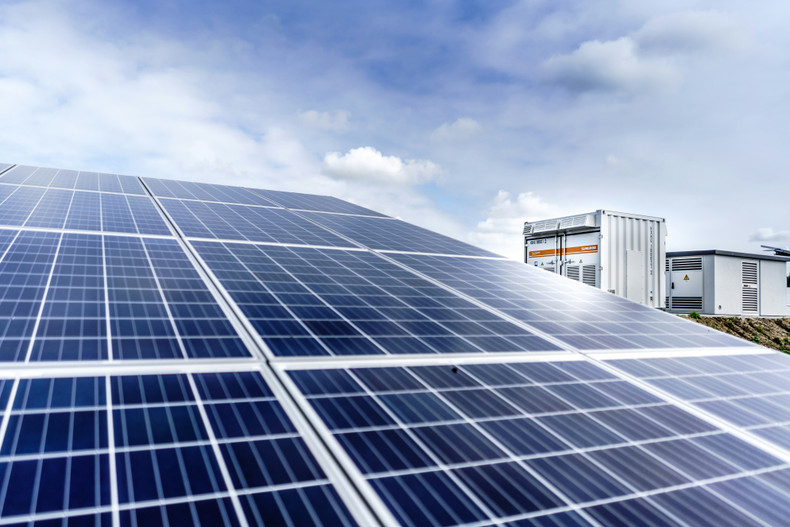Solar energy has rapidly evolved over the past decade, transforming from a niche alternative into a mainstream source of power. The economics of solar energy present a compelling argument for both individuals and businesses to invest in this renewable resource as of 2024. This blog delves into the current costs and benefits associated with solar energy, particularly in India, where the potential for solar power is immense.
The Declining Cost of Solar Panels
One of the most significant factors contributing to the attractiveness of solar energy is the declining cost of solar panels. Technological advancements and economies of scale have driven down the price of photovoltaic (PV) panels. According to the International Renewable Energy Agency (IRENA), the cost of solar PV modules has decreased by about 90% since 2010. In India, the average cost of solar power has dropped to approximately INR 2.50 per kWh, making it one of the cheapest sources of electricity.
Government Incentives and Policies
The Indian government has played a pivotal role in promoting solar energy through various incentives and policies. The Ministry of New and Renewable Energy (MNRE) has introduced schemes like the Solar Rooftop Programme and the Pradhan Mantri Kisan Urja Suraksha Evam Utthaan Mahabhiyan (PM-KUSUM). These initiatives offer subsidies and financial assistance to install solar panels, reducing the initial investment burden on consumers. Additionally, net metering policies allow solar panel owners to sell excess electricity back to the grid, providing an additional income stream.
Environmental Benefits
Solar energy is a clean and sustainable source of power. By harnessing the sun's energy, we can significantly reduce our reliance on fossil fuels, thereby decreasing greenhouse gas emissions. India, which is one of the world's largest carbon emitters, stands to benefit immensely from a shift towards solar energy. The widespread adoption of solar power can help the country meet its climate goals under the Paris Agreement, reducing air pollution and promoting public health.
Economic Benefits
Investing in solar energy can lead to substantial economic benefits. For households, installing solar panels can drastically reduce electricity bills. While the initial investment may seem high, the long-term savings make it a financially sound decision. Businesses, particularly those with high energy consumption, can also benefit from lower operational costs by switching to solar power.
Moreover, the solar industry has the potential to create numerous jobs across various sectors, including manufacturing, installation, maintenance, and research and development. This can drive economic growth and provide employment opportunities, especially in rural areas where job scarcity is a significant issue.
Technological Advancements
Technological advancements in solar energy are continuously improving efficiency and reducing costs. Innovations such as bifacial solar panels, which capture sunlight on both sides, and solar tracking systems, which follow the sun’s path, have increased the energy output of solar installations. Energy storage solutions, like lithium-ion batteries, are becoming more affordable and efficient, allowing for the storage of solar power for use during non-sunny periods. These advancements make solar energy a more reliable and attractive option for consumers.
Financing Options
The availability of multiple financing options has also made solar energy more accessible. Financial institutions in India are increasingly offering loans specifically for solar panel installations. Additionally, solar leasing and power purchase agreements (PPAs) allow consumers to install solar panels with little to no upfront cost, paying for the system over time through savings on their electricity bills.
Challenges and Solutions
Despite the numerous benefits, widespread adoption of solar energy poses challenges. One of the primary concerns is the intermittency of solar power, as it is dependent on weather conditions and daylight availability. However, advancements in energy storage and grid integration are addressing these issues, making solar power a more stable and reliable source of energy.
Another challenge is the availability of land for large-scale solar installations. In a densely populated country like India, land is a precious resource. Researchers are exploring innovative solutions like floating solar farms and agrivoltaics, which install solar panels above agricultural fields, to overcome this challenge.
Conclusion
In 2024, the economics of solar energy in India present a compelling case for its adoption. With falling costs, improved efficiencies, and supportive government policies, solar power offers significant financial benefits over the long term. As technology continues to advance and the market matures, we can expect these economic advantages to become even more pronounced.
For those considering making the switch to solar energy, now is an opportune time to explore the options available. Waaree, a leading solar solutions provider in India, offers a comprehensive range of high-quality solar products and services tailored to meet diverse energy needs. From residential rooftop systems to large-scale commercial installations, Waaree's expertise and cutting-edge technology ensure optimal performance and maximum returns on your solar investment. Visit shop.waaree to learn more about their product range and take the first step towards a more sustainable and economically advantageous energy future.

